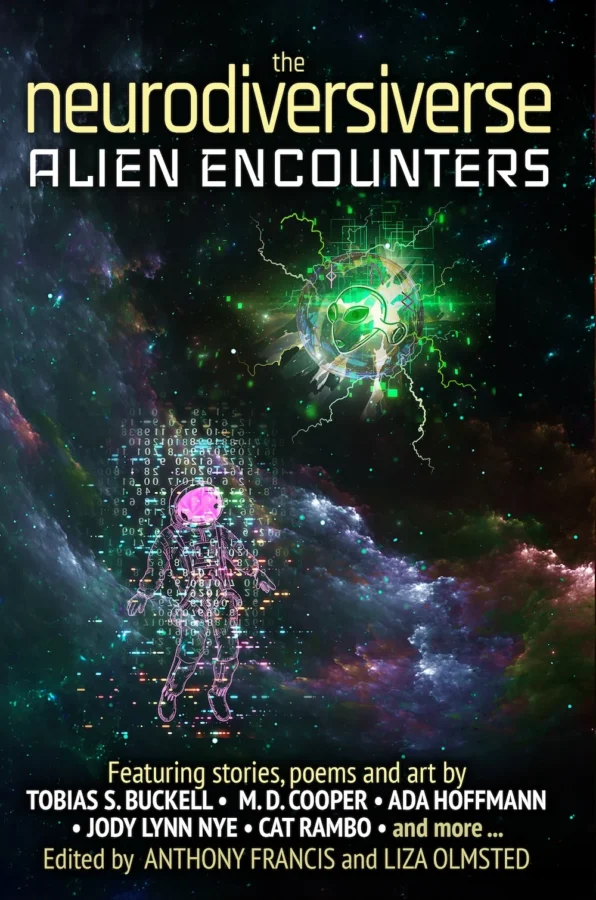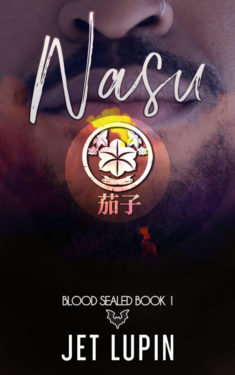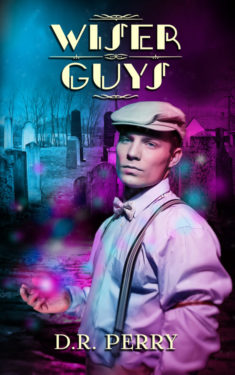by

Would neurodiversity be an advantage in an encounter with aliens? Let’s find out!
Heartbroken starships.
Human-sized hamster balls.
Superpowers unleashed by anxiety.
A planet covered in mathematical fidgets.
And we finally learn why aliens abduct cows.
A diverse, hopeful anthology of neurodiversity-themed science fiction short stories, poetry and art for anyone who loves science fiction, who cares about neurodiversity, or who wants to see optimistic visions of the future.
Featuring stories, poems and art from Tobias S. Buckell, M. D. Cooper, Ada Hoffmann, Jody Lynn Nye, Cat Rambo, Clara Ward, and nearly forty other contributors, The Neurodiversiverse: Alien Encounters was edited by Anthony Francis, author of the award-winning urban fantasy novel Frost Moon, and Liza Olmsted, editor of the writing inspiration book Your Writing Matters.
The Neurodiversiverse includes themes of autism, ADHD, PTSD, OCD, synesthesia, several kinds of anxiety, avoidant attachment disorder, dissociative disorder, and more.
Many of these stories are told from an authentic neurodiverse #ownvoices perspective, featuring characters whose experiences and reactions are informed by authors who share their neurodivergent ways of thinking and being, and we are proud to bring you this anthology celebrating neurodiversity.
Humans in hamster balls try to communicate with an alien ocean!
Publisher: Thinking Ink Press
Editors:
Illustrators:
Cover Artists:
Genres:
Tropes: Aliens Among Us, Benevolent Aliens, Found Family
Languages Available: English
Tropes: Aliens Among Us, Benevolent Aliens, Found Family
Languages Available: English
This was such an interesting anthology of speculative fiction. Using neurodiversity as the foundation for science fiction is both clever and much-needed. Neurodivergent characters aren’t very common in speculative fiction, especially as main characters and especially in stories where the plot is approached in an affirmingly neurodivergent manner. It’s not just about having an autistic character in a story but of being able to show the world through their eyes. We should be able to tell neurodiverse stories not just neurotypical stories with neurodivergent characters in them. The Neurodiversiverse does that really well.
I’m not usually big on poetry, but Sid Gosh’s “Hell No!” struck a chord with me, both in terms of the content and the structure. I also enjoyed “Navigational Aid” by Holly Schofield for its honesty about what it’s like dealing with neurotypical language obstacles. And Natasha Von’s artwork LoveHEART was gorgeous. If Von ever makes a color print of that, I’d consider buying it, it’s that good.
Overall, this is a strong, if long, anthology. Readers looking to read outside majority experiences should consider this.







